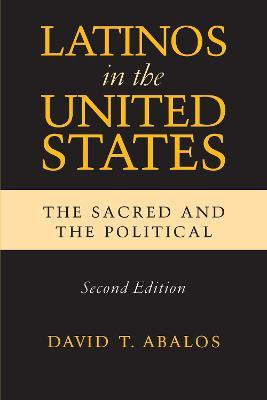Latinos in the United States(English, Hardcover, Abalos David T.)
Quick Overview
Product Price Comparison
When Latinos in the United States was first published in 1986, it was hailed as a "triumph" by the National Catholic Reporter, "inspiring" by the journal American Studies, and was named an Outstanding Academic Book of the Year by Choice. The book was widely adopted in Latino and ethnic studies classes at colleges and universities throughout the country. Now, in the second edition, David Abalos updates his pioneering application of the transformation theory to key aspects of Latino politics, history, and culture. He draws on examples from everyday human encounters to address specific concerns of both Latino individuals and groups. Among the issues addressed are: the need to maintain Latino family heritage while allowing each member to develop the autonomy necessary to interact both within the family and within American society; the importance of avoiding assimilation; the necessity for Latinos to develop the skills and competence that allow them to enter into America's business world without losing their commitment to the community; rediscovery of Latino religious symbols of transformation that renew the life of the sacred; and the need to preserve Latino heritage through a strategy of being both American and Latino. The second edition contains extensive new material. Abalos includes a new section on archetypal analysis. He has added discussions of the relationship between the sacred and the political in American politics, and of assimilation and its effects on the immigrant. He addresses the new wave of migration and what it means to the future of the United States and la comunidad Latina. Abalos has also added a new chapter on the politics of education, which is, he argues, the most important civil rights issue facing the Latino community. The notes and bibliography reflect recent scholarship, especially that of Latina writers and Chicana feminists.


